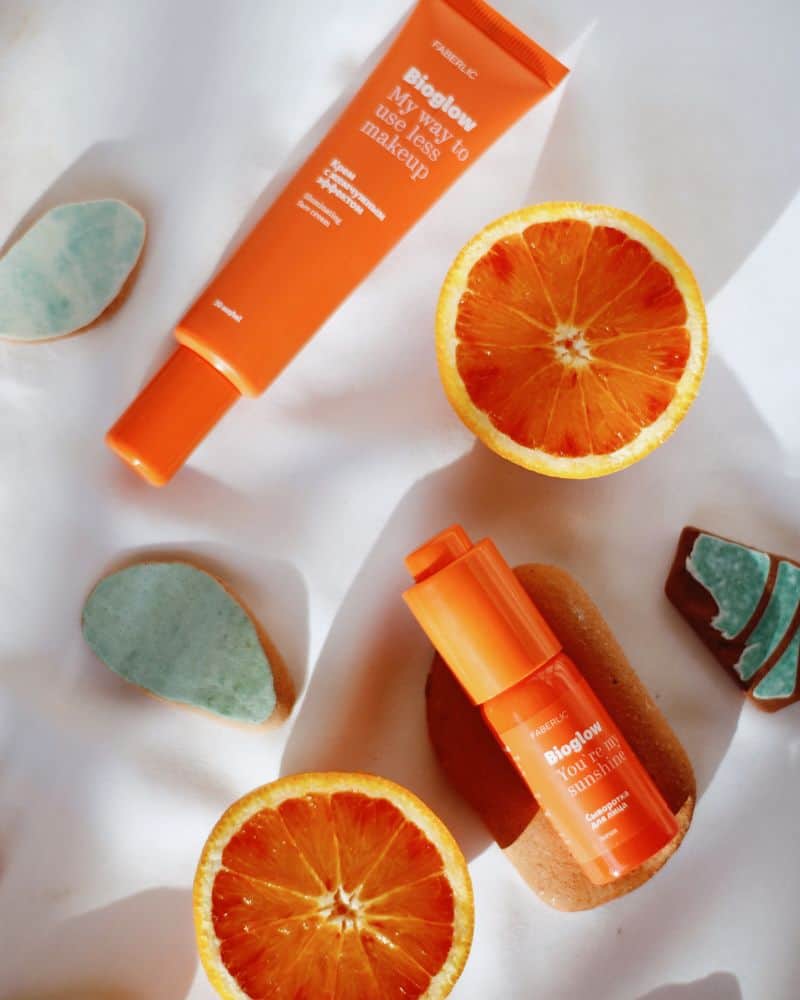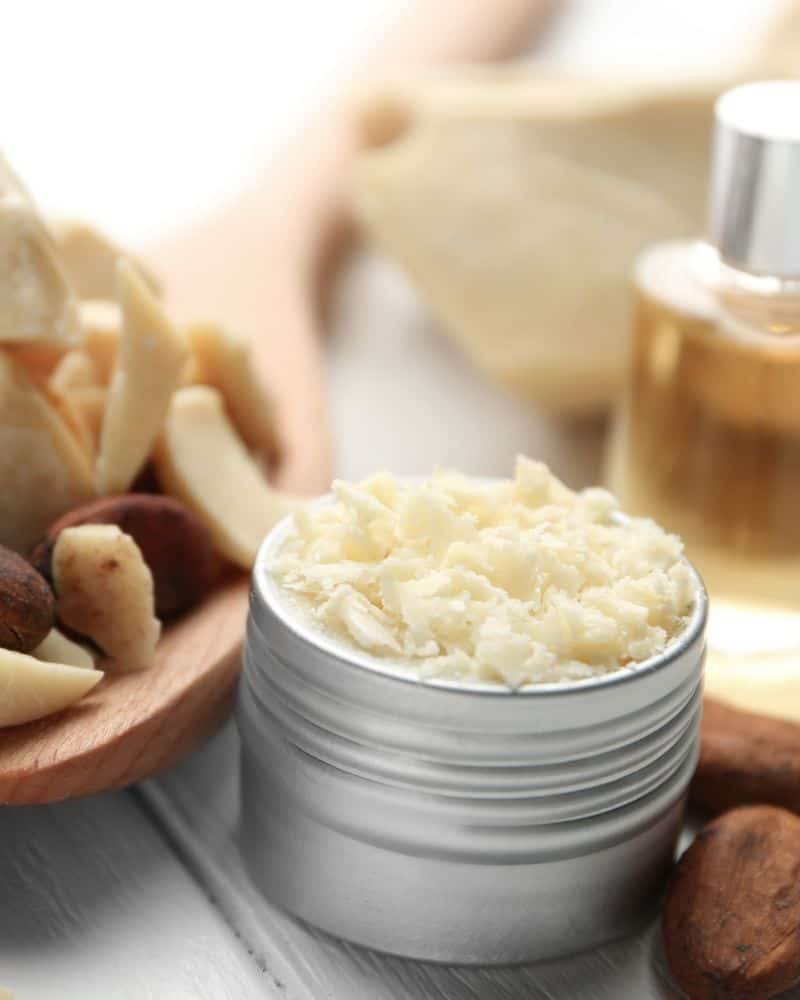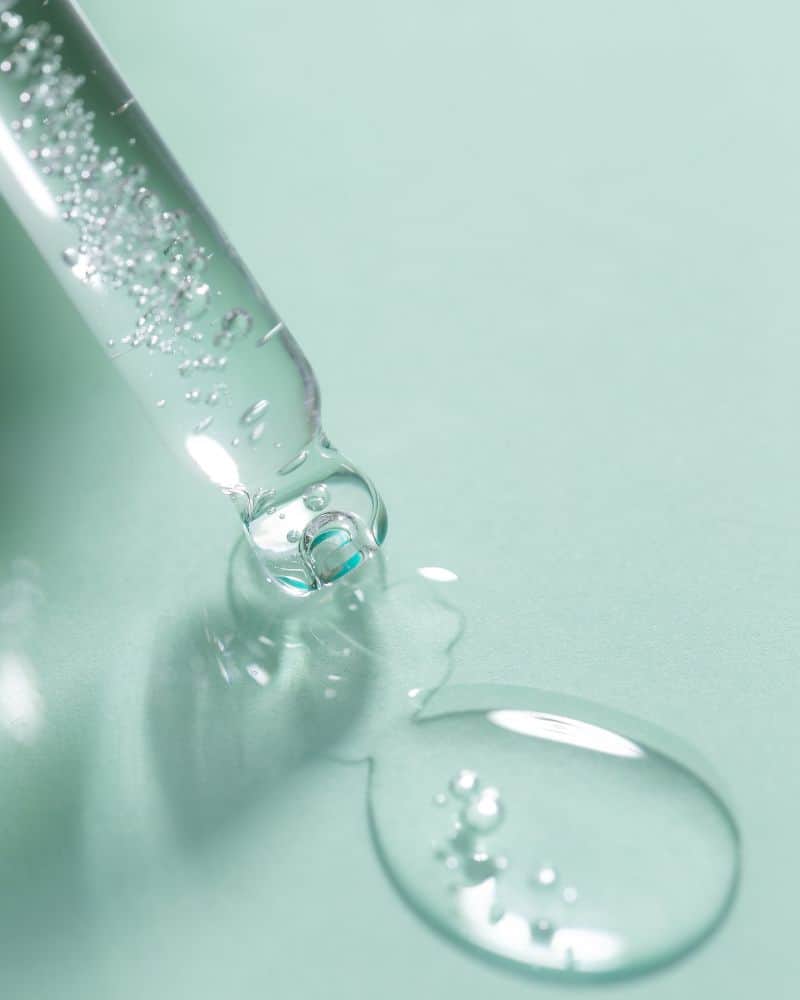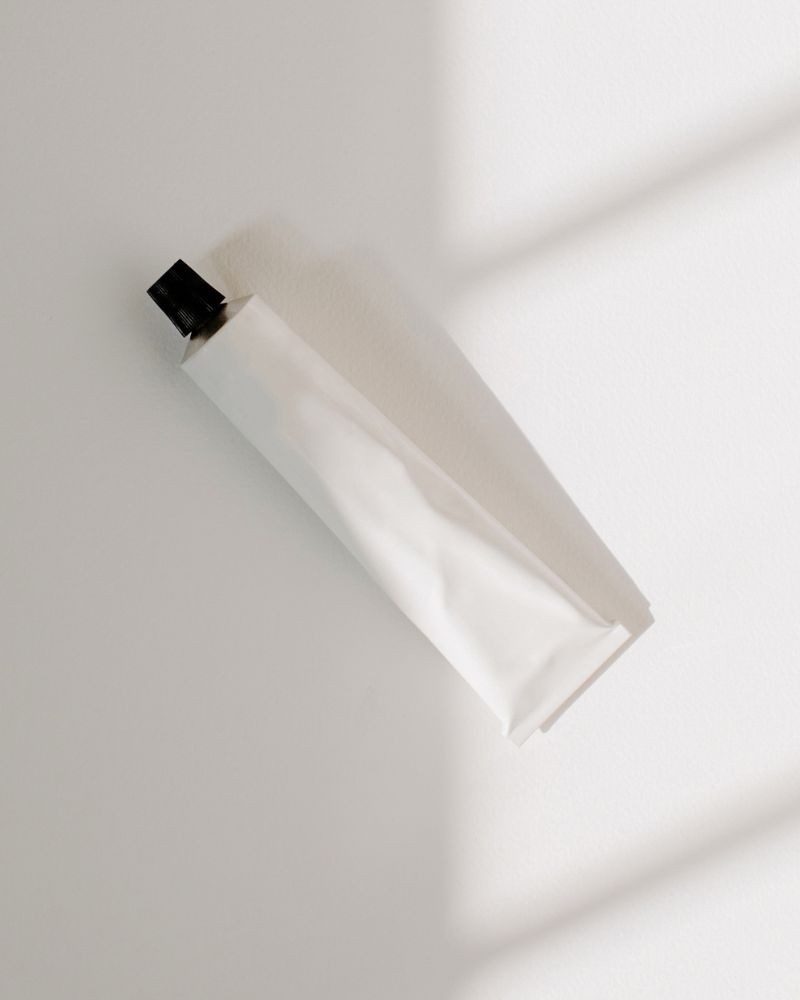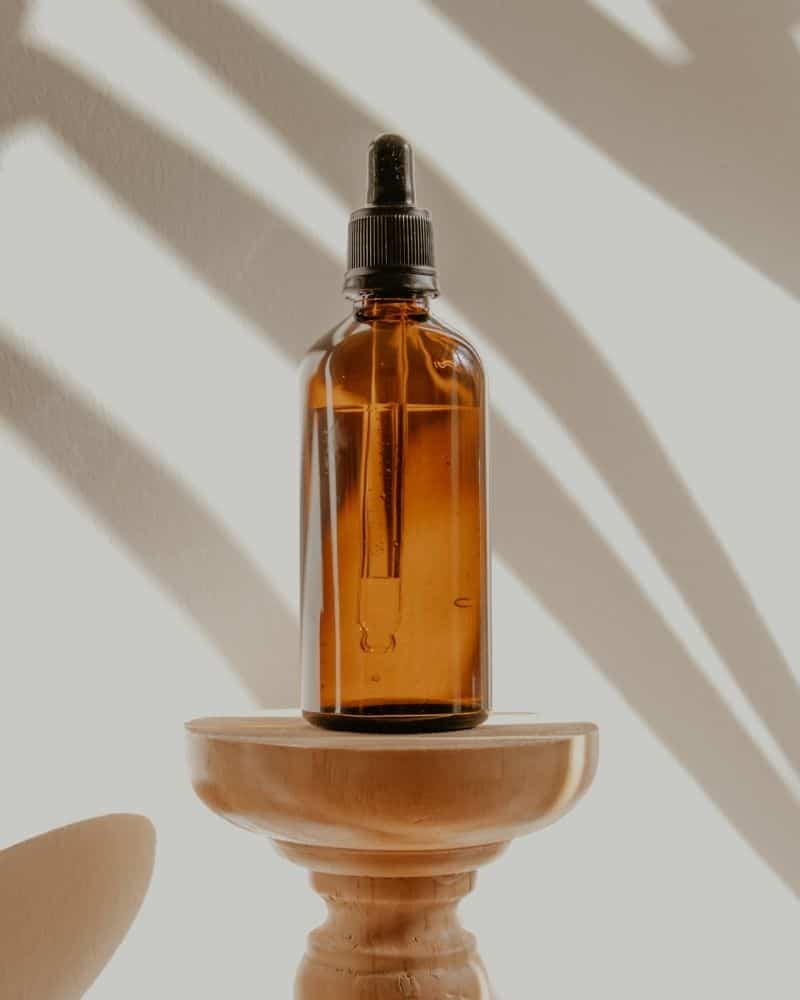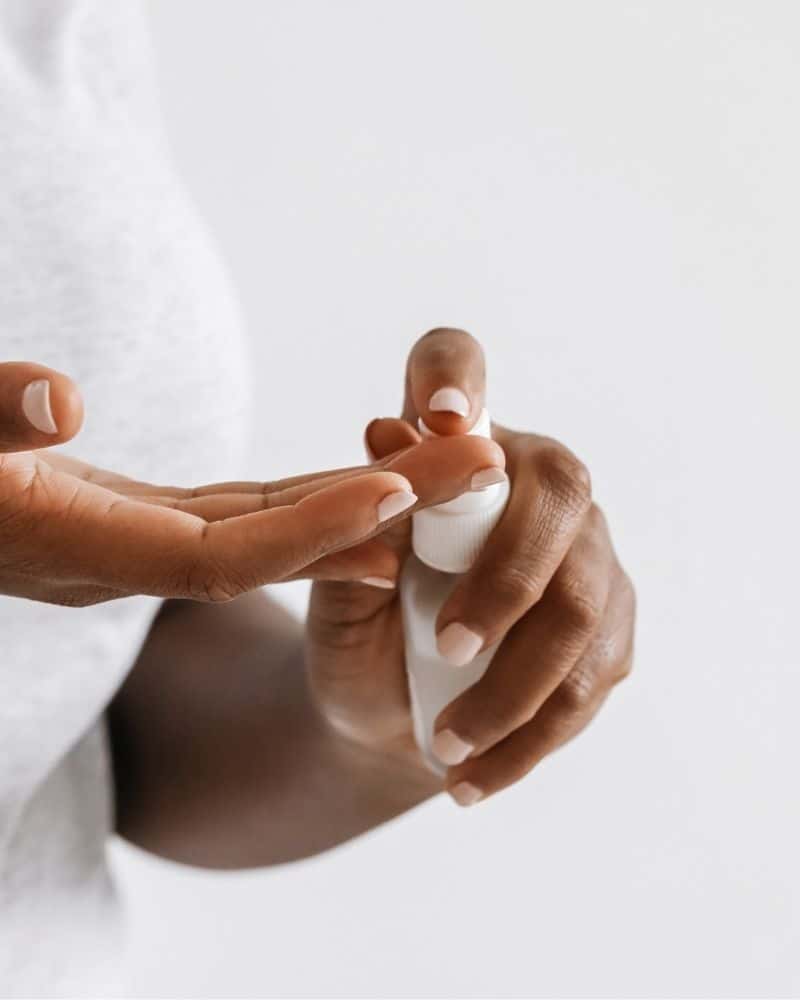Marula Oil Vs Rosehip Oil: Which One Is Better?
This post may contain affiliate links.

Although oils have been used in skincare for centuries, they have become increasingly popular thanks to big brands like Drunk Elephant and The Ordinary. Two of the most popular oils on the market now are Marula Oil and Rosehip Oil. While they are both great facial oils for the skin, they do have their differences. In this post we’ll talk about Marula Oil Vs Rosehip Oil, the benefits, differences and how to pick the right one for your skin.
What Are Facial Oils?
Before we compare Marula Oil Vs Rosehip Oil, it’s important to understand what an oil is and why they’re used in skincare. Oils are a by-product from plants or certain types of nuts that contain high concentrations of fatty acids. These fatty acids give oils their properties which make them a powerful ingredient in skincare.
Our skin naturally produces fatty acids and oils to help reduce water loss and help keep skin moisturized. However, factors like aging, skincare products and other environmental factors can lessen the amount of fatty acids and oils our skin produces. So, that’s where facial oils come in!
They are used to help balance the skin and prevent water loss, dehydration and dryness.
Why Use Oils In Skincare

Beauty oils can have a ton of different benefits, depending on the oil. Each oil has a different composition, which means it can benefit the skin a little differently than others. For example, some oils have been shown to help with acne, while others are good at soothing the skin.
Here are some benefits of facial oils:
- Moisturize: oils create a barrier so that water stays in so your skin stays hydrated and plump
- Barrier repair: some oils can help strengthen the skin’s barrier
- Anti-aging: since oils help to keep skin moisturized and plump, this can help diminish fine lines and wrinkles
- Antioxidant: some oils have antioxidant properties, making them great choices for during the day to protect your skin against damage
- Acne: some oils have antibacterial properties to help treat and prevent acne
- Anti-inflammatory: other oils can help soothe skin and decrease inflammation
- Balance: oils can help balance super oily skin or super dry skin
- Makeup application: oils create a smooth and even surface that’s perfect for makeup application
Why Fatty Acids Are Important For The Skin
Fatty acids are naturally found in the skin and are essential to the skin’s health and function. Some common types of fatty acids are Omega-3, Omega-6 and Omega-9 fatty acids.
Fatty acids provide moisturization, nourishment and hydration. They can also help balance the skin, strengthen the skin barrier, calm inflammation, reduce acne and stimulate collagen production.
Marula Oil Vs Rosehip Oil
Now that we know what facial oils are, let’s talk about marula oil vs rosehip oil. Is Rosehip oil better than Marula oil? Let’s find out!
What Is Marula Oil?
Marula oil, also known as Sclerocarya Birrea Seed oil, comes from trees that are found in Southern parts of Africa called Marula trees. They grow Marula fruit, which is where the oil comes from. This oil is extremely popular in skincare because it has high concentrations of antioxidants like vitamin C and E. Marula oil also contains fatty acids and amino acids which can help with skin hydration and barrier repair.
Although Marula Oil has been around for a long time, it’s become insanely popular in recent years, mostly thanks to Drunk Elephant. It’s one of the most popular facial oils because of its multitude of benefits and lightweight, yet nourishing texture.
Benefits of Marula Oil
- Hydration – marula oil has hydrating properties, which means it can help draw water into the skin to keep the skin plump and bouncy
- Moisturizing – thanks to the fatty acid makeup of marula oil, it’s incredibly moisturizing while still being a lightweight facial oil
- Occlusive – it can also act as an occlusive which helps to lock moisture into the skin, prevent transepidermal water loss and help your skincare products work more effectively
- Antioxidant – Marula oil has some incredibly powerful antioxidant properties, which makes it great for those concerned about aging and skin damage. It’s rich in Vitamin C and Vitamin E which are both antioxidants that protect the skin from free radical damage. Vitamin C also helps to stimulate collagen production for younger-looking skin.
What Is Rosehip Oil?
Rosehip oil, also known as Rosehip Seed Oil, is an oil that comes from the seeds of wild rose bushes. The seeds are what’s left behind after the flowers have lost their petals. While most Rosehip Oil originates from the rose bushes found in the Andes Mountains around Chile and Argentina, there are some other places around the world where you can find these plants.
Rosehip oil is known as a “dry” oil, which means that it’s non-greasy and very lightweight, especially when compared to thicker oils like olive oil. That’s a big reason why rosehip oil is so popular – it sinks into the skin and doesn’t leave behind an oily feel.
It’s a favorite skincare product for many because of its high concentrations of antioxidants to help prevent and repair damage. This oil is also particularly popular with oily and acne-prone skin types because of its lightweight texture and its ability to help fade acne scarring and hyperpigmentation.
Benefits of Rosehip Oil
- Antioxidant – because of its high levels of Vitamin C, rosehip oil helps to protect the skin against free radical damage which can lead to premature aging
- Brightening – Rosehip seed oil is high in Vitamin C and Vitamin A, which both help to brighten skin tone and fade discolorations
- Healing – Rosehip oil is known for its healing properties thanks to its high levels of antioxidants, fatty acids, B vitamins, as well as Vitamin A, C, E and K
- Anti-aging – Rosehip oil can help reduce fine lines and wrinkles thanks to its moisturizing effects, as well as Vitamin A which stimulates collagen production
- Healing – it’s incredibly healing and nourishing thanks to all the vitamins and fatty acids
- Anti-inflammatory – this oil is calming and can help decrease inflammation in the skin
- Acne – Rosehip oil has antibacterial properties that can help with acne by killing acne-causing bacteria
- Hydrating – because of its high levels of fatty acids, this oil is intensely hydrating and moisturizing. The fatty acids cells retain water so skin stays hydrated and plump
- Exfoliating – since it’s high in Vitamin A, Rosehip seed oil can help exfoliate the skin to help with tone, texture and brightness
Related post: Can You Use Rosehip Oil On Your Lips?
Marula Oil Vs Rosehip Oil: Composition
While Marula Oil and Rosehip Oil may seem to do many of the same things, their composition is incredibly different. And this can be super important in choosing the right facial oil for your skin.
Marula Oil
- 70-78% oleic acid
- 4-7% linoleic acid
- More comedogenic (3-4)
- Less carotenoids
- Best for dry skin
Rosehip Oil
- 14% oleic acid
- 54% linoleic acid
- Less comedogenic (1)
- More carotenoids
- Best for acne-prone/oily skin
You may be wondering what all this means, so keep on reading to find out why these ingredients are important when it comes to picking out an oil.
Linoleic Acid and Oleic Acid
Linoleic and Oleic acids are fatty acids that are common in oils. The ratio of linoleic to oleic acid is extremely important when picking out an oil.
Linoleic acid is an Omega-6 fatty acid that tends to be lighter and is more easily absorbed by the skin. If you have oily or acne-prone skin, you likely have low levels of linoleic acid in your skin and therefore can benefit from a facial oil that’s high in linoleic acid.
Oleic acid (and Omega-9), on the other hand, is thicker and more nourishing and therefore more beneficial for those with drier skin types.
As a general rule, if you’re acne-prone or oily, you want an oil that’s high in linoleic acid. Whereas if you have dry skin, an oil that’s high in Oleic acid will help you more.
Marula Oil Vs Rosehip Oil: Similarities
Both Marula Oil and Rosehip Oil are well-researched and effective facial oils that have been around for centuries. They both contain a high concentration of antioxidants, making them especially good at protecting against environmental stress and damage. Here are some of the key similarities between Marula oil and Rosehip oil:
- Both oils have high concentrations of antioxidants to help defend against damage. These antioxidants help fight free radicals that can not only damage the skin but lead to premature aging
- Both Marula oil and Rosehip seed oils are hydrating and moisturizing and can help prevent transepidermal water loss and keep the skin barrier strong
- Both facial oils create a barrier on the skin to keep hydration in and any irritants out
- Both oils can help reduce flaky skin, soothe skin conditions like eczema and reduce inflammation in the skin
Related post: Is Rosehip Oil Or Squalane Better?
Marula Oil Vs Rosehip Oil: Differences
It’s also important to look at what are the differences between Marula and Rosehip oils. Oftentimes, the differences will make it easy to pick which facial oil is best for your skin. Here are some of the differences between Marula and Rosehip oils:
- Fatty acid ratio: Marula oil has more Oleic acid and less Linoleic acid, whereas Rosehip oil has more Linoleic acid and less Oleic Acid
- Rosehip oil has a wider variety of vitamins, including Vitamin A, B, C, E and K
- While both oils have antioxidant properties, Marula oil is higher in antioxidants like Vitamin C
- Rosehip oil is lighter in texture and sinks into the skin easier, whereas Marula oil is thicker and feels heavier
- Marula oil is higher on the comedogenicity scale, which means it may be more likely to clog pores. Rosehip oil is low on the scale, which means it likely won’t clog pores
- Rosehip oil has brightening effects which can help with skin tone as well as acne scars and other discolorations. Marula oil does not have a brightening effect
- Rosehip oil has antibacterial properties which means it can help treat and prevent acne
Marula Oil Vs Rosehip Oil For Face
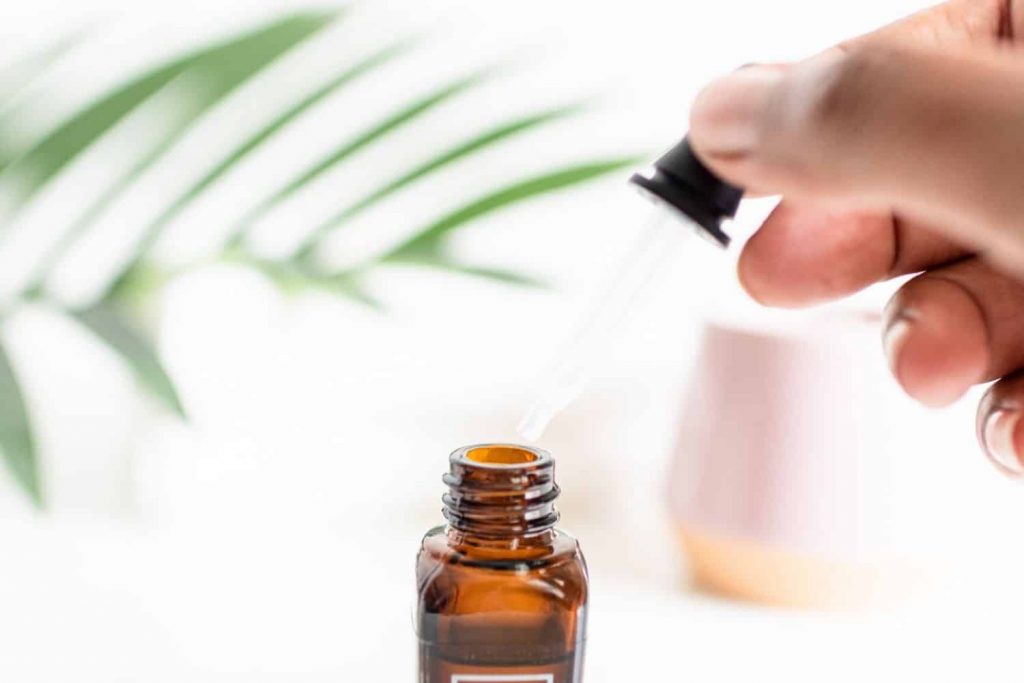
Let’s compare which oil is better for certain skin types and skin concerns.
Is Marula Oil Good For Aging Skin?
Yes, Marula is great for aging skin because of its high concentrations of antioxidants, as well as its ability to keep skin moisturized which helps to diminish fine lines and wrinkles.
Is Rosehip Oil Good For Wrinkles?
Rosehip oil can help fade fine lines and small wrinkles because it helps to keep skin moisturized, stimulate collagen and smooth skin texture. These can all help diminish and prevent wrinkles.
Marula Oil Vs Rosehip Oil For Dry Skin
If you have dry skin, Marula Oil will be the best for you because of its high concentration of Oleic acid, richer texture and nourishing properties
Marula or Rosehip Oil For Oily Skin
For those with oily skin, Rosehip seed oil is the best choice because of its light texture, antimicrobial properties and high concentration of Linoleic acid.
Does Marula Oil Clog Pores?
Marula oil scores about a 3-4 on the comedogenicity rating, meaning it can clog pores. It’s best to do a patch test if you’re worried about breakouts or a reaction.
Related Post: Does Shea Butter Cause Clogged Pores On Face?
Best Marula Oils
Naturium Virgin Marula Face Oil
The Naturium Marula Oil is 100% unrefined, cold-pressed and organic virgin Marula Oil. Naturium sustainably sources their Marula Oil, making it a great option for those who are eco-conscious.
This multi-tasking oil can be used on anything from your face, hair or cuticles to nourish and moisturize. It’s a thicker, clear oil that feels so nourishing on the skin. It has a silky texture and sinks in pretty quickly.
Since this oil is pure Marula Oil, you know you’re getting all the goodies in this facial oil: antioxidants, vitamins and tons of nourishment.
The Ordinary 100% Cold-Pressed Virgin Marula Oil
Another pure Marula Oil that’s also incredibly affordable. It’s a rich, luxurious oil that will leave your skin looking absolutely glowing. leaving it feeling hydrated and smelling divine.
With the antioxidant power from this cold-pressed virgin African Marula oil, it’s perfect to use during the day to protect the skin and at night to repair.
Drunk Elephant Virgin Marula Luxury Facial Oil
Marula Oil’s claim to fame, the Drunk Elephant Marula Oil will help you defy aging, prevent moisture loss, and environmental damage. Rich in critical antioxidants and omegas 6 and 9 – it’ll nourish your skin while restoring a youthful glow.
This pale, golden yellow oil feels silky when applied on the skin. For some reason, it really does feel more luxurious than other Marula Oils I’ve tried. It’s a splurge, but it’s worth the splurge.
Acure The Essentials Pure Marula Oil
The Acure Marula Oil has been touted as the best Drunk Elephant Marula Oil dupe. It’s affordable, it’s silky and it works.
Rich in Omega fatty acids, antioxidants and other vitamins, this oil works on anything from flaky skin to cuts. And with a much cheaper price, you can afford to slather this on.
Bonus points for the pump packaging because oils can get messy.
Pure Body Naturals Marula Facial Oil
An oil that will protect, provide hydration, and keep you comfortable all day long? This oil has got you covered! This lightweight oil has a velvety feel with a non-greasy finish that provides instant relief for dry or irritated skin. Marula Oil reinforces the foundation of healthy youthful-looking skin providing nutrients essential for maintaining elasticity while nourishing dry skin.
Marula Beauty Organic Facial Oil
This oil helps you achieve smoother skin and fight the first signs of aging like age spots, fine lines and wrinkles. It’s rich in antioxidants and essential fatty acids to keep your skin healthy.
This oil penetrates fast for all- day hydration that restores firmness and reduces the appearance of fine lines/wrinkles.
Best Rosehip Oils
Acure The Essentials Rosehip Oil
With 100% pure organic rosehip oil, this drugstore find is a true gem. It’s cold-pressed, which keeps all the good stuff like vitamins, antioxidants, etc. Its dry texture is perfect for those who are concerned with looking oily – this dry oil will absorb quickly without leaving you looking greasy.
Good Molecules Pure Cold-Pressed Rosehip Seed Oil
Sustainably sourced from Chile, this pure Rosehip oil is affordable and effective. It works to brighten, plump and smooth the skin while hydrating without leaving a greasy residue.
Herbivore Phoenix Rosehip Anti-Aging Face Oil
Not only is the packaging of this oil absolutely stunning, it will also leave your skin looking healthier, smoother and brighter. This facial oil blend features Rosehip oil, Sea Buckthorn Oil, Chia Seed Oil, Meadowfoam Seed Oil and Neroli Oil which are all rich in antioxidants, fatty acids and vitamins.
This oil is ultra-nourishing and will help moisturize the skin while strengthening the skin barrier and reduce signs of premature aging.
The Inkey List Rosehip Oil
The Inkey List Rosehip Oil nourishes skin while boosting radiance. It contains Linoleic Acid that can help regulate oil production in those with oily or blemish-prone skin types.
This oil with tackle uneven skin tone, texture and even blemishes while it nourishes the skin with fatty acids, antioxidants and vitamins.
The Ordinary 100% Organic Cold-Pressed Rose Hip Seed Oil
With 100% pure Rosehip Seed Oil, this facial oil nourishes, protects and brightens the skin. Thanks to the cold-pressed process, all the goodies in this oil stay intact, so you get all the benefits at a really cheap price.
Trilogy Certified Organic Rosehip Oil
This cult-favorite Rosehip Oil is cold-pressed, organic and 100% pure Rosehip Oil. With over 80% fatty acid content, this facial oil is nourishing, hydrating and repairing. Overtime, it will help the appearance of dark spots, stretch marks, fine lines and wrinkles.
This oil instantly reduces flaky skin and gives skin a radiant glow without looking greasy.
Marula Oil Vs Rosehip Oil: Wrap Up
Both oils are great for the skin, but rosehip oil is typically more suitable for oily or acne-prone skin types because of its high concetration of Lineolic acid. Rosehip seed oil absorbs quickly without leaving you looking greasy and it helps to hydrate dry or irritated skin while strengthening your skin barrier. Marula Oil has a high concentration of Oleic acid, which makes it an excellent option if you’re looking for something that will nourish dry skin.
When choosing a facial oil, make sure it’s cold-pressed. The cold-pressed process ensures that all essential goodies stay intact so you’re getting all of the vitamins, antioxidants and fatty acids.
Related To Marula Oil Vs Rosehip Seed Oil:
- Micellar Water Vs Toner
- Rosehip Oil Vs Jojoba Oil
- Watermelon Seed Oil Benefits For Skin & Hair
- Aquaphor Vs Vaseline: What’s The Better Occlusive?
- Retinol Vs Hyaluronic Acid: Are They The Same?
- Salicylic Acid Vs Glycolic Acid: Which Should You Use?
- Body Butter or Body Lotion: Which Should You Use?
- Is Castor Oil Non-Comedogenic?
- Rosehip Oil Vs Argan Oil: What’s The Difference?


